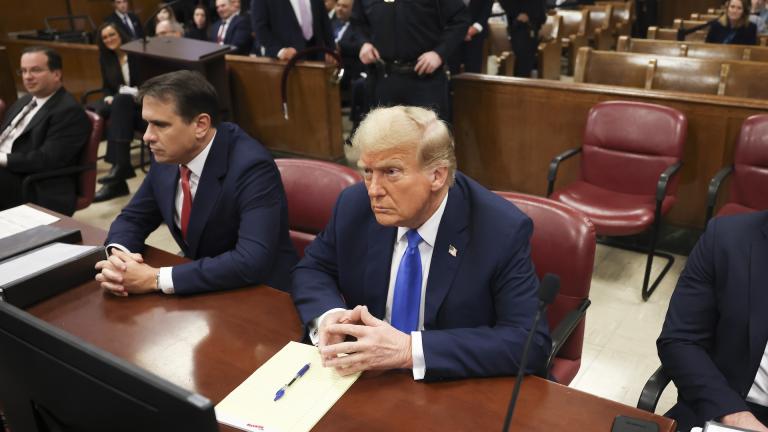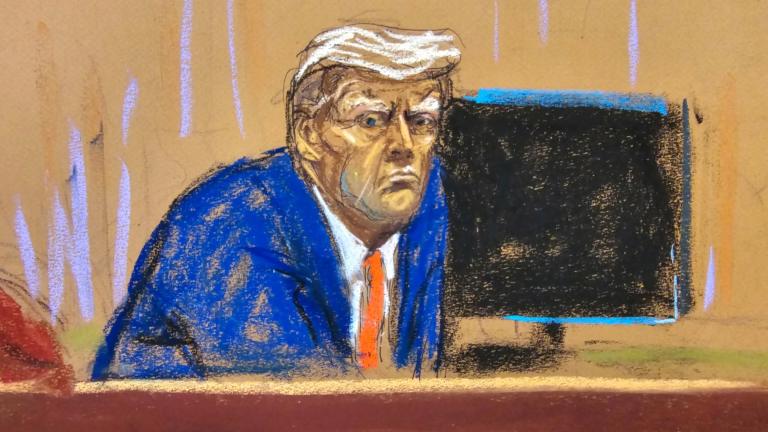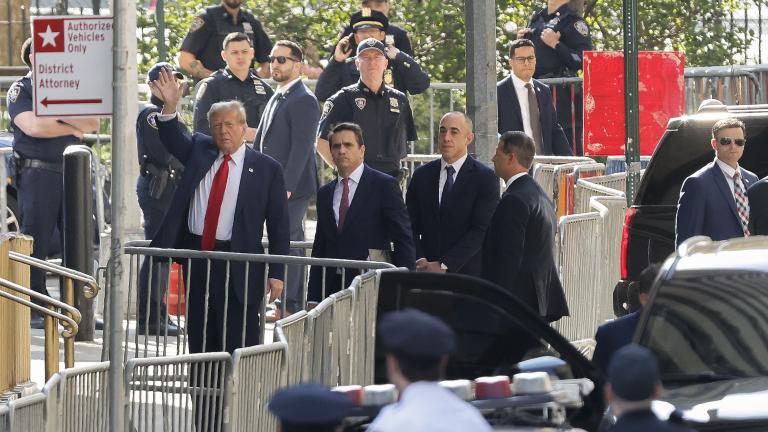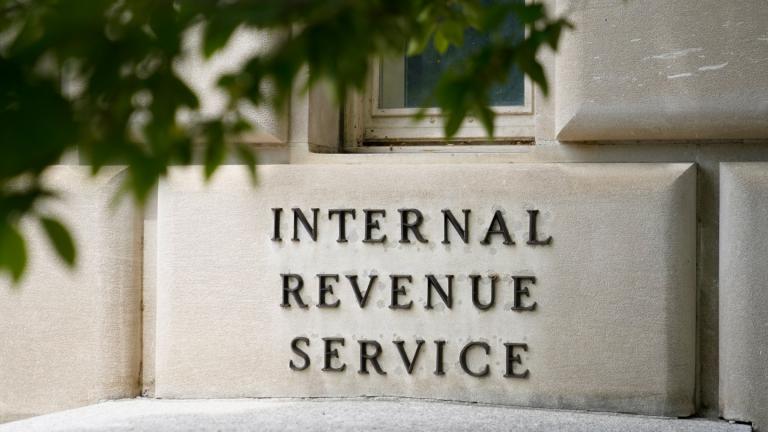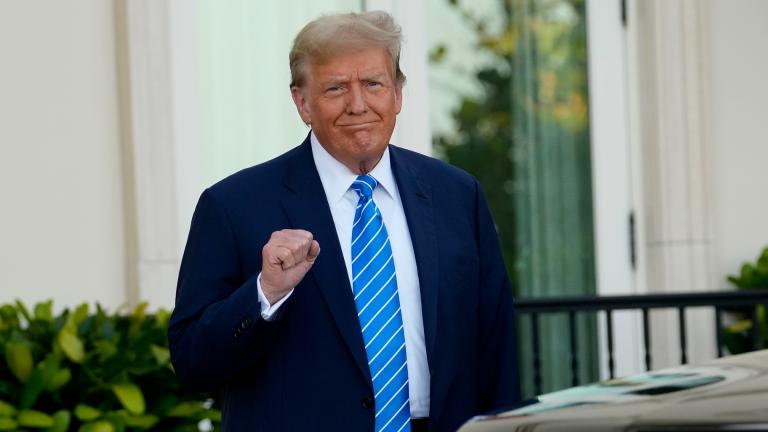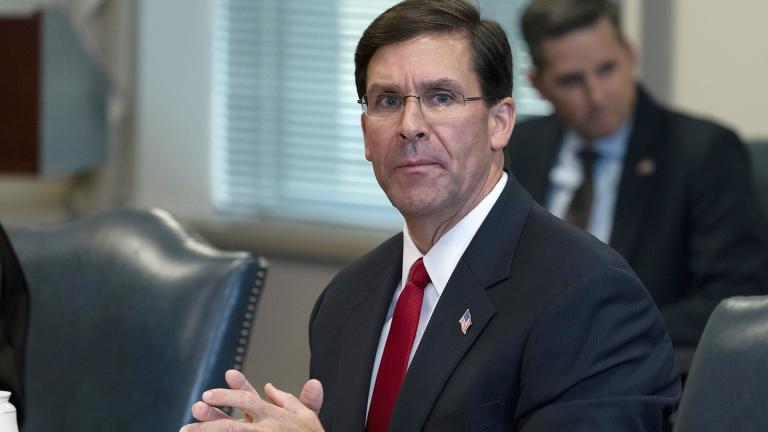Although it was first dubbed the Cabinet by President James Madison, the commander in chief’s group of high-level advisers dates back to our nation’s first leader, George Washington.
Fast-forwarding to today – some of President-elect Donald Trump’s choices for Cabinet positions and Cabinet-ranking advisers have raised eyebrows.
Looking back on U.S. history in addition to contemporary politics, what does Trump’s Cabinet so far say about how he might lead as president?
Joining us to discuss the president’s Cabinet are William Adler, assistant professor of political science at Northeastern Illinois University; and John Nothdurft, government relations director at the Heartland Institute, a libertarian and conservative think tank based in Arlington Heights.
Below, Q&As with Adler and Nothdurft.
![]()

Chicago Tonight: How important and impactful is the president’s Cabinet?
William Adler: It certainly matters. You’re putting people in positions of high authority. You’re giving them control over large bureaucracies. You’re putting in their hands decisions – the routine, day-to-day operations that don’t get overseen by the president. And the advice that they give to the president obviously matters a lot for the big picture, consequential decisions, as well.
It can make a very large difference if you think for example about the case of Donald Rumsfeld, who was George W. Bush’s Secretary of Defense: that’s somebody who had a very big impact on the direction of the conflicts in Afghanistan and Iraq during Bush’s presidency. The person can matter a lot, just from that point of view.
CT: Are there any Cabinet figures or entire Cabinets that were particularly pivotal in American politics?
WA: The one that comes to mind first is probably the Cabinet of Abraham Lincoln. Lincoln brings into his Cabinet a lot of figures, some of whom were his political opponents prior to becoming president – people like Salmon Chase of Ohio, who ran against him for the Republican nomination. This has been called in some cases “a team of rivals” – people he brought in who were his opponents in many respects and disagreed with him and he brought them in and relied on them and used them to help manage the war when things were looking pretty bad. He relied very heavily on them and that was a pretty pivotal moment when the Cabinet and the people in it were particularly important.
Another case would be Washington’s Cabinet. He brings in today what you might call “the best and the brightest." He’s got Thomas Jefferson and Alexander Hamilton. He’s got the best minds of the country – all of them in that room together and they’re just trying to figure out the basic starting points of the U.S. government. They end up coming to these massive disagreements, which sort of lead to the formation of our first two political parties, the Federalists and the Democratic Republicans, when Hamilton and Jefferson constantly disagree with each other. Those are the first two that come to mind right away.
CT: What do President-elect Donald Trump’s current picks for Cabinet and Cabinet-ranking positions indicate to you?
WA: Well, a few things: one is that he’s willing to pick people who are unconventional in certain respects. I think particularly now that he’s chosen Gen. John Kelly for Homeland Security – that’ll make two generals in the Cabinet and another one for his national security adviser. That’s a lot of former military personnel by comparison to past administrations. In fact, to the point that Mattis will need a special waiver from Congress because right now it will be illegal for him to serve in a civilian role.
Trump has been very publicly considering a number of people for Secretary of State. Someone like Mitt Romney, who was his political rival, would be an interesting choice. If that’s not unprecedented, it’s certainly a striking example of picking someone who was your political opponent in the past. It definitely seems like there’s some unconventional thinking going into it.
CT: What do you make of this Cabinet being characterized by some as over-militarized?
WA: It’s extremely unusual. I was talking about Mattis’ need for a waiver – the last person who needed a waiver like that was George Marshall after World War II to become Secretary of State. The sheer number of military personnel being considered or being put into these positions is very unusual.
I think it’s somewhat concerning. Not any one particular individual who’s been named, as much as the overall effect of what it means for civilian control of our government to have all of these former military personnel in these high-ranking positions. One of the names being considered for Secretary of State is David Petraeus – that would be another general.
CT: Do you think there’s more scrutiny or attention being paid to Trump’s transition process compared to previous incoming administrations?
WA: I think there’s a high degree of concern only because Trump is such a wild card himself. So there’s a feeling that the advisers he picks matter a lot.
Of course, we don’t know this for sure, yet, but it certainly seems like he’s very readily influenced by the people around him. I’m thinking, in particular, after his initial meeting with General Mattis to consider him for Secretary of Defense, Trump made a statement saying, “You know, I said something to Mattis about how we need to bring back waterboarding and Mattis said to me, ‘Actually, you know, in the military we realized a long time ago that torture doesn’t really work, it’s not effective,’” and Trump said, “Oh, I didn’t know that, that’s really interesting.”
So it’s almost like, just from that one meeting he was already shifting his thinking a little bit. So maybe more than previous presidents, it matters a lot who those people are and what they’re saying to Trump. We’re speculating a little bit.
I remember there was a lot of talk when Obama was elected and the process by which he ended up choosing Hillary Clinton to be Secretary of State. There was a lot of discussions about that at the time and the unusual nature of bringing in one of your political opponents to your Cabinet.
Bill Clinton had a lot of trouble when he was first elected. The first two people he chose for attorney general were rejected, so he ended up with his third choice, Janet Reno.
There have definitely been cases of controversial people. I think the overall focus on Trump does seem high.
CT: Is there any president’s Cabinet in history that was particularly pivotal?
John Nothdurft: I think it’s very important, especially in the Trump administration since he’s a political newcomer. I think it’s going to be very impactful because it seems like, even in his own words, that he’s going to really rely on the people he appoints to these different positions, so I think this time around, more than ever, it’s going to be very important who he selects.
CT: What are your takeaways from his current picks?
JN: Historically, they’re pretty much in line with what other administrations have done. Most of them have very good experience. I think they’re very conservative, for the most part. A lot of them are politicians by trade and that may serve them well working in a Trump administration since, like I said, he doesn’t have much experience. I’ve been surprisingly encouraged by the picks he’s made so far, for the most part.
CT: Are there any past Cabinet members that strike you as being influential in the White House?
JN: I think even George W. Bush – his Cabinet was very influential. With Colin Powell, who was very instrumental in what happened in the Iraq War. Condoleeza Rice was pushing a lot of different things. Even Bill Clinton – his Cabinet was very influential. A lot of those people have stayed in politics and helped try to get his wife elected. Robert Reich, who was the Labor Secretary, was very influential. There were also very influential Cabinets in the Eisenhower and Kennedy administrations.
CT: Do you anticipate any Cabinet nominees having trouble with Senate approval?
JN: Well, obviously you have General Mattis who was just announced as his Defense Secretary. He is pretty widely supported on both sides of the aisle. While they have to jump some hurdles to get a waiver for him to be the Defense Secretary, I would say that’s the biggest problem. It’s not with the pick himself, but the historical nature of that. That’s going to be a tricky one. Betsy DeVos, the Education Secretary, there might be a fight there.
I think the Democrats are likely to pick a handful of people who are way outside the mainstream or the ones that are scariest to them. I don’t think they’ll go after all of them. I think they’ll pick two or three. General Mattis, Betsy DeVos and probably Jeff Sessions – those are the ones who I think they’d be most likely to go after.
Follow Evan Garcia on Twitter: @EvanRGarcia
Related stories:
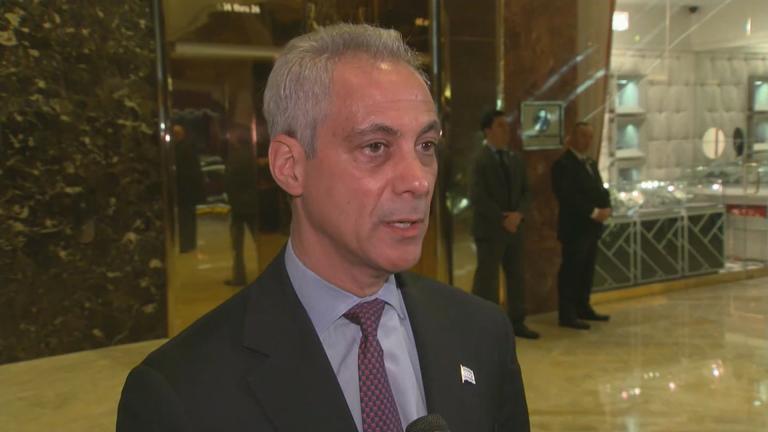 Mayor Emanuel Meets with President-Elect Trump
Mayor Emanuel Meets with President-Elect Trump
Dec. 7: The mayor delivers a letter to Donald Trump, urging the president-elect to protect the status of Dreamers.
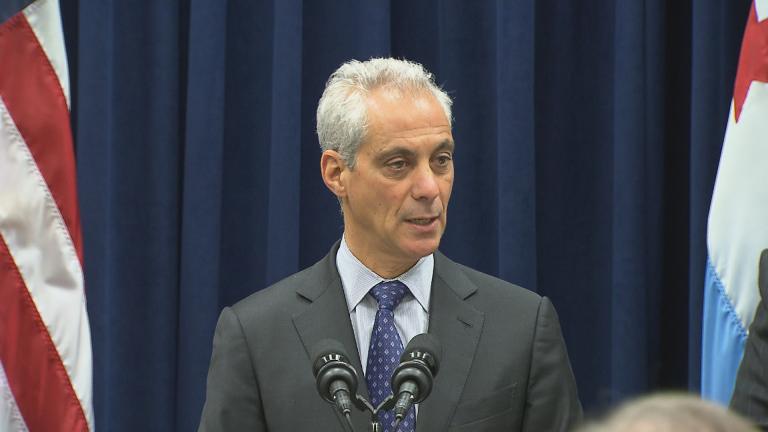 Emanuel Creates Legal Fund with $1M to Protect Immigrants, Refugees
Emanuel Creates Legal Fund with $1M to Protect Immigrants, Refugees
Dec. 2: Mayor Rahm Emanuel announced Friday the creation of a legal protection fund to help thousands of immigrants and refugees threatened with deportation and pledged $1 million to start the fund.
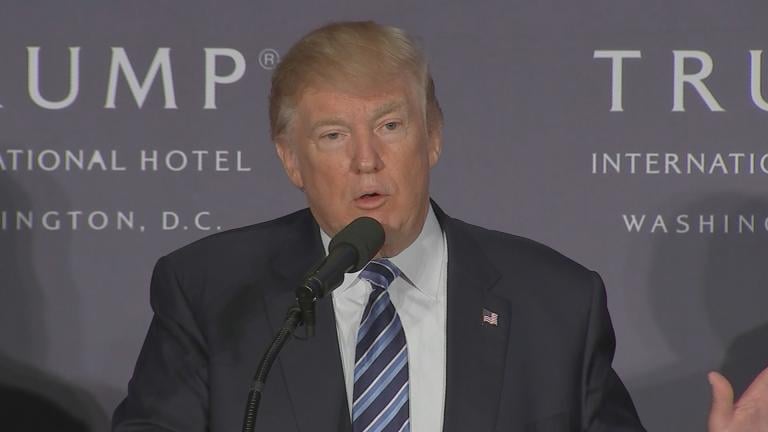 Trump’s Business Entanglements Create Ethics Concerns
Trump’s Business Entanglements Create Ethics Concerns
Dec. 1: How President-elect Donald Trump’s global business empire could create potential conflicts of interest.

